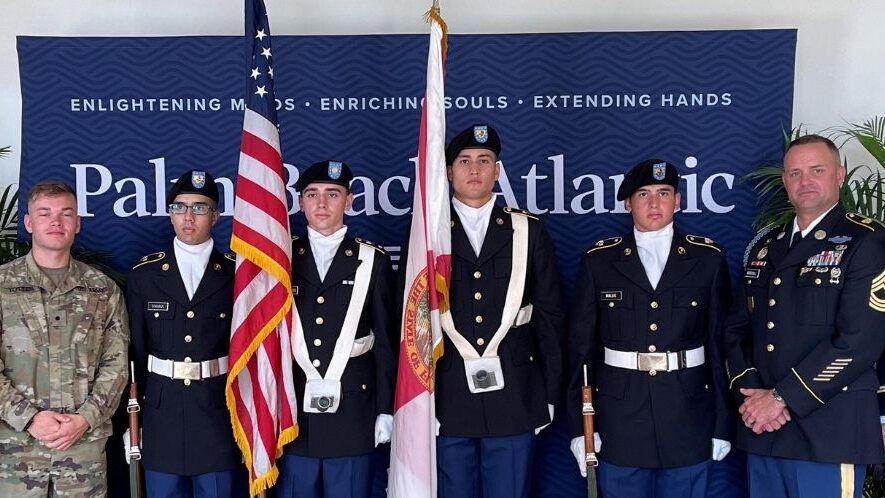PBA’s ROTC Program
Students who are interested in military careers should learn more about the unique opportunities PBA’s Army ROTC program provides. Students enrolled in the ROTC program can earn a minor in military science. This program is 80% “hands-on” and 20% traditional “taught” curriculum.
How Does ROTC Work?
Army ROTC allows students to earn an undergraduate degree while also training for military service. Students who recieve an Army ROTC scholarship will receive a tuition scholarship, money for books, a personal living stipend, and a guaranteed career as an Army officer upon completion of the program. In exchange for these benefits, scholarship students must commit to eight years of military service.
The Army ROTC program requires four years of active duty and four years in the Army Reserves. The Army ROTC scholarship is a competitive merit scholarship that many students compete for. Non-scholarship students can also participate in ROTC for two years with no service obligation.The ROTC allows students to gain an education, leadership skills, long-term benefits, and unique career opportunities.
The Army ROTC program awards students with a military science minor which is broken up into three phases. Phase one and two correspond to a student’s first two years of study and only incur a service commitment for students who have received a scholarship.
Phase one and two classes include:
- Introduction to the Army
- Introduction to the Army Lab
- Foundations of Leadership
- Foundations of Leadership Lab
- Leadership & Ethics
- Leadership & Ethics Lab
- Army Doctrine and Decision Making
- Army Doctrine and Decision Making Lab
Phase three classes will be completed once students are contracted cadets. Phase three classes include:
- Training Management and the Warfighting Functions
- Applied Leadership in Small Unit Operations
- The Army Officer
- Company Grade Leadership
- U.S. Military History
- PMS Directed Independent Study
Requirements for ROTC
To qualify for the Army ROTC program students must:
- Be United States citizens
- Meet physical fitness standards
- Be 17 years of age or older
- Have a high school diploma
- Meet SAT or ACT minimum score
- Minimum high school GPA of 2.5
How to Get an ROTC Scholarship
The Army ROTC scholarship is a competitive program. In 2023-2024, 3,000 students were awarded Army ROTC scholarships. One-third of these scholarships were four-year scholarships and two-thirds were three-year scholarships. Students who apply for an Army ROTC scholarship are ranked on a number of criteria. The total possible score of 1400 is broken down into the following categories:
SAT/ACT scores – 250
Academics, Athletics and Leadership -200
Interview Score – 200
Physical Fitness Test Score – 150
Civilian Background Experience Form (CBEF) – 250
Selection Board Score – 350
To have the best possible chance of winning an Army ROTC scholarship, students should aim for an SAT score of 1200 or an ACT score of 24. Civil participation, being an honor roll student, and other awards and recognitions can also boost students’ chances.
Benefits of ROTC
PBA’s Army ROTC program provides students with life-long leadership qualities and a strong career outlook. By the time ROTC students graduate, they will have developed an exceptional work ethic, teamwork skills, and decision-making skills in addition to their chosen area of study.
Army ROTC scholarship recipients will also receive $420 per month for personal expenses and $1,200 per year for textbooks. Other benefits include comprehensive health care coverage and a basic housing allowance.
Students who complete PBA’s Army ROTC program will become Second Lieutenants in the U.S. Army and qualify for a starting salary of $81,624 in West Palm Beach, FL.
Majors for ROTC Students
While some branches of the military require their ROTC students to select specific majors, the Army’s ROTC program allows students to choose any major they like. All graduates of PBA’s Army ROTC program will earn a minor in military science. Here are some popular majors for ROTC students:
- Computer Science
- Engineering
- Business
- Cybersecurity
- Criminal Justice
- Psychology
